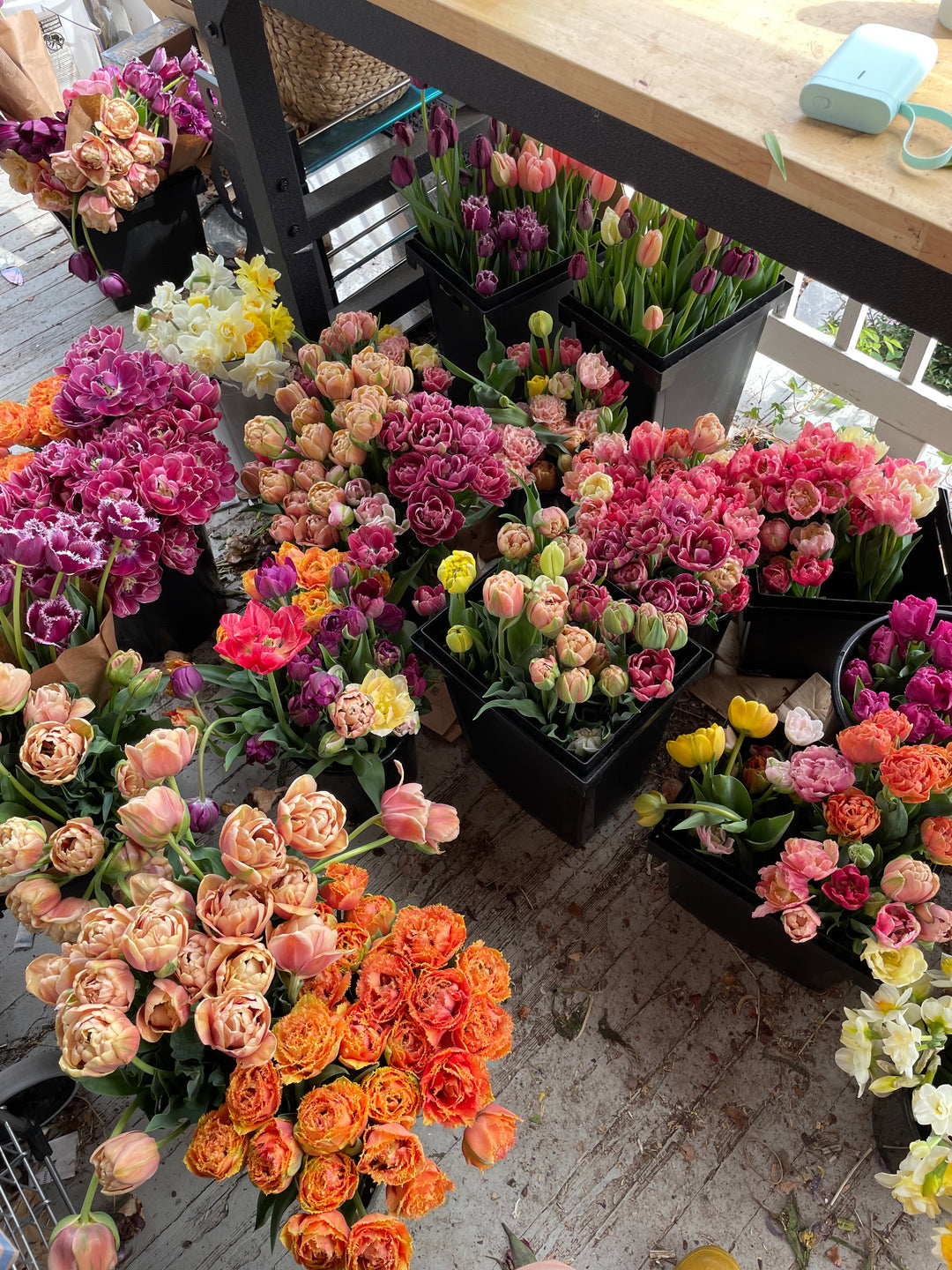Vegetable Planting Calendar
HHF Vegetable Direct Seed Planting Calendar
Winter/Spring Edition
Let's grow some Veg! You can do it we promise. Harvesting your own food from your garden or planters is the best feeling. It tastes better! It's good for the dirt and worms; bugs and birds. A person can grow a shocking amount of food in a small space.
The only rule is; grow what you like to eat.
We plant in Zone 7, Arlington, Virginia
First Frost Date: October 25
Last Frost Date April 26
Essential to winter planting is a frost cover or frost blanket. We use Agribon-30.
Adjust your own schedule accordingly
What are direct seeded winter and spring Vegetables?
Direct Seeded = Chuck it in the dirt. When the nights are cold and the days are short life in the garden is hard to come by. Winter/Spring vegetables are tough against the cold. They need minimal water or care once sprouted and have a lower temperature to germination. Our short list of favorites to toss int the dirt are: Arugula, Turnips, Spinach, Carrots, Lettuce, Beans, Peas, Dill, Cilantro, Lettuce and Radish. We prefer to start indoors and transplant: Broccoli, Kale, Brussels, Cauliflower, Cabbage, Onion, Celery, Radicchio.
When should you start planting your winter and spring vegetables?
Timing is everything when it comes to planting vegetables. To help you plan your garden effectively, we have created a winter spring vegetable seed planting calendar specifically for planting zone 7. By following this calendar, you can ensure that your Beans, Peas, Lettuce, Turnips, Carrots, Arugula, and Radishes will thrive. Around Thanksgiving save some time to escape to the garden and clear a spot for winter planting. Once the weeds are gone lay down fresh compost and a balance organic fertilizer. Tuck a frost cover over the prepared bed until you are ready to plant. It will keep the weeds out and the soil warmer.
December
December is the perfect time to start planning your winter and spring vegetable garden. While it may be cold outside, there are still a few vegetables that can be planted during this month. In Virginia our December can be in the 40's. The rule of thumb is if the ground is workable and free of frost crystals, you can plant seeds. Sow Spinach, Arugula and Hakurai Turnips. Water the seeds after planting and tuck the frost blanket loosely on top. The blanket will speed germination and protect the seeds from critters. Feeling ambitious? Clear and Prep another bed for February planting. Leave this bed covered with frost cloth until ready to plant.
January
In January, it's time to start sowing your Brussels sprouts, Kale, and Broccoli seeds indoors. These vegetables require a longer growing season, so starting them indoors will give them a head start. Transplant your seedlings outdoors in late February or early March, depending on the weather conditions.
February
February is the month to sow your beans, peas, and turnip seeds indoors. These vegetables prefer cooler temperatures, so starting them indoors will ensure that they have a chance to establish before the warmer spring weather arrives. Transplant your seedlings outdoors in late March or early April. If you've prepped a bed in December plant beans, peas, arugula when your soil is workable.
March
In early March, it's time to sow your lettuce, bok choi, and radish seeds directly into the garden. These vegetables are cold-hardy and can be planted as soon as the soil can be worked. Make sure to provide them with adequate water and protection from frost if necessary.
April
By April, the weather should be warming up, and it's time to sow your carrot seeds directly into the garden. Carrots prefer cooler temperatures and can be planted as soon as the soil is workable. Make sure to keep the soil moist during germination.
May
In May, your vegetable garden should be in full swing. By this time, all of your winter and spring vegetables should be planted and growing. Make sure to provide them with adequate water, sunlight, and nutrients to ensure a successful harvest.
By following this winter spring vegetable seed planting calendar, you can maximize your garden's productivity and enjoy a variety of fresh, homegrown vegetables throughout the season. Happy gardening!

Leave a comment